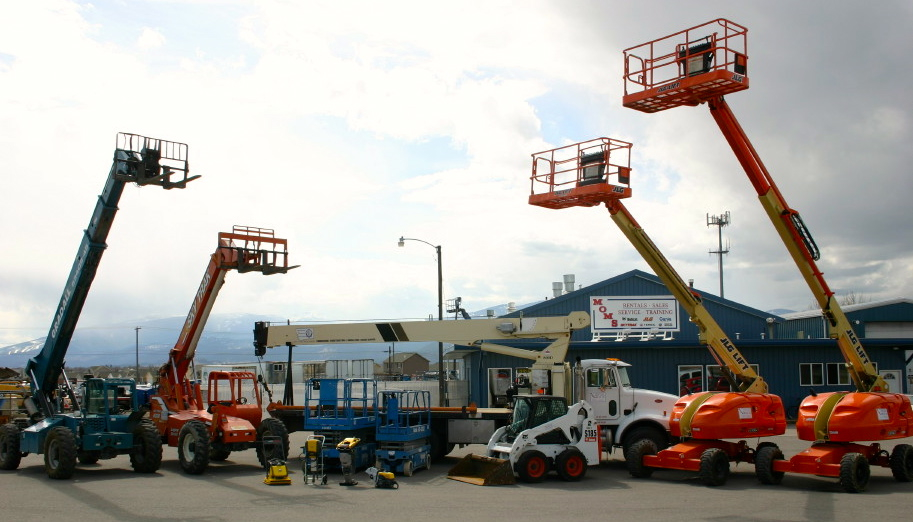Equipment Rental Company: Your Resource for All Types of Machinery
Equipment Rental Company: Your Resource for All Types of Machinery
Blog Article
Optimize Your Budget Plan by Comprehending the Costs Connected With Construction Tools Leasings
Comprehending the full extent of prices connected with construction equipment services is vital for maximizing your budget. While the first rental charge may appear simple, various added costs-- such as transportation, gas surcharges, and maintenance-- can promptly collect, impacting your economic planning. Moreover, knowing different charges and the details of rental contracts can aid prevent unexpected economic worries. What methods can be used to efficiently take care of these expenses and make certain a more reliable rental experience?
Introduction of Rental Expenses
When considering building and construction devices services, comprehending the associated prices is critical for effective budgeting and job planning. Rental prices can vary dramatically based on numerous elements, consisting of devices kind, duration of service, and location. The first rental charge usually shows the tools's market demand and its linked operational abilities, affecting the general expenditure.
In addition to the base rental price, ancillary expenses might occur, such as transport fees, gas surcharges, and maintenance costs. It is vital to make up these additional costs to properly evaluate the complete price of renting devices. Furthermore, the rental period can affect rates; longer rentals may get approved for affordable rates, while short-term leasings might sustain higher daily charges.

Malfunction of Rental Rates
A detailed understanding of rental rates is vital for specialists and task managers aiming to optimize their budgets. Rental prices for building and construction tools commonly contain numerous elements, including base rates, time-based costs, and use charges.
Base rates are the core charges connected with the service of the devices, typically identified by the type and size of the equipment. These rates can vary significantly, affected by variables such as devices demand, availability, and local market fads. Time-based fees, which may be daily, weekly, or monthly, offer to fit different project timelines and rental periods.
In addition, rental rates may include usage costs, which are relevant when devices is made use of beyond a specified threshold, making certain that the rental business can account for damage. Seasonal demand fluctuations can additionally affect rental prices, with peak building periods normally commanding greater costs.
Moreover, comprehending the rental company's plans regarding upkeep and insurance coverage can provide additional understanding into the total expense framework. By evaluating these parts, specialists can make informed decisions, making certain the choice of rental tools aligns with both task requirements and budget plan restraints.
Added Fees to Consider
Comprehending the ins and outs of added fees is essential for specialists to handle their total service expenses effectively. Beyond the standard rental rates, various extra costs can dramatically influence the complete price of tools service. These costs often consist of distribution and pick-up costs, which can differ based upon range and logistics associated with delivering the devices to and from the task site.
Furthermore, some rental business may impose gas additional charges if the tools is returned with much less fuel than when rented. It is also important to be aware of potential cleansing costs, specifically for specific devices that requires extensive upkeep after use.

Extensively examining the rental this content agreement and clarifying these added charges upfront can aid specialists make sure and avoid unanticipated expenses that budgets useful reference continue to be intact throughout the task lifecycle.
Maintenance and Fixing Costs
Regular repair and maintenance costs are frequently forgotten elements that can significantly affect the overall expense of construction devices rentals. When leasing tools, it is critical to take into consideration not only the rental costs but likewise the possible costs connected with maintaining the machinery in ideal operating problem.
Numerous rental firms consist of basic upkeep as component of the rental agreement; nevertheless, extra unforeseen failures or extensive repair services can bring about additional expenses. It's vital to assess the rental contract thoroughly to comprehend what upkeep solutions are covered and what duties drop on the renter.
Additionally, devices that is not well-kept can bring about inadequacies at work site, potentially raising and creating hold-ups task costs. To mitigate these risks, it is recommended to conduct routine assessments and preserve open communication with the rental supplier pertaining to any kind of concerns that develop throughout use.
Insurance Coverage and Obligation Expenses
Insurance and liability costs are crucial elements that can substantially affect the overall expense of building and construction tools leasings (scissor lift rental). These expenses ensure that both the rental firm and the customer are safeguarded from potential economic losses developing from accidents, damages, or burglary during the rental duration

Furthermore, customers ought to be mindful of any type of deductibles or exemptions in the insurance plan, as these can affect prospective out-of-pocket expenses. Comprehending the terms of any type of insurance policy coverage is crucial to avoid unforeseen prices. Ultimately, budgeting for insurance coverage and responsibility costs can aid ensure a smoother rental experience and safeguard against economic risks related to building tasks.
Conclusion
In conclusion, an extensive understanding of the costs associated with construction equipment rentals is essential for reliable spending plan management. Eventually, informed decision-making regarding equipment services adds to the general success of construction endeavors.
Rental prices can differ substantially based on a number of factors, consisting of devices type, period of leasing, and place (heavy equipment rental). The rental duration can affect pricing; longer services might qualify for affordable rates, while temporary leasings might sustain higher day-to-day fees
By midi excavator conducting comprehensive research and involving with credible rental business, contractors can properly navigate the intricacies of rental prices, ultimately maximizing their economic sources.
Beyond the conventional rental rates, different supplementary fees can significantly impact the overall price of equipment rental. Rental business often offer obligation insurance policy that covers injuries to third events or damage to building, while equipment damages insurance policy can cover the cost of repair services or substitute if the rented devices is harmed.
Report this page